On August 18, Sri Lankan media reported that the United States had decided to suspend bilateral negotiations with Colombo on the controversial Status of Forces Agreement (SOFA) until after the presidential election in the island nation1. While this pause in talks may serve to distract the public for the time being and, perhaps drive attention towards other talking points as election day comes closer, the issue in itself can be expected to remain on the national agenda. Equally important, it will also be a touchpoint to understand how different geo-strategic equations are evolving in the region. In this context, two other US-Sri Lanka bilateral agreements deserve to be mentioned: the Acquisition and Cross-Servicing Agreement (ACSA), and the Millennium Challenge Corporation’s (MCC) Sri Lanka Compact. Together with SOFA, the political narrative emerging from these three bilateral agreements speak volumes about how Sri Lanka, its neighbours, and its allies are navigating the choppy waters of the Indo-Pacific.
Status of Forces Agreement (SOFA)
Let’s start with the SOFA; this agreement provides a legal framework for when American military personnel visit Sri Lanka on peacetime missions such as training exercises, humanitarian assistance and disaster relief missions. Notably, Sri Lanka and the US already have a SOFA in place. The agreement was signed in 1995 when President Chandrika Bandernaike Kumaratunga was at the helm2. But Washington was keen on updating the agreement. Accordingly, negotiations began in August 2018 but the new agreement, as proposed by the US, has since come under much scrutiny and criticism3. It is perceived to be much wider in scope than the original 1995 version, and critics of the pact argue that, among other things, it undercuts Sri Lanka’s sovereignty.
A draft of the US proposal was published by the Sunday Times newspaper which highlighted some of the more controversial provisions4. At the top of the list is the proposal that visiting US military personnel, including civilian contractors, be accorded the same privileges, exemptions and immunities as US Embassy diplomatic staff. This has raised many eyebrows across the commentariat and among the public. And equally so has the proposal that US personnel be allowed to wear uniforms and carry arms while on duty. A third point that has caused much consternation is that Sri Lankan criminal jurisdiction not be applicable to US personnel, instead, US Armed Forces authorities will have disciplinary control. Other proposals highlighted in the Sunday Times include tax waivers for US personnel and property, permission for US vessels and vehicles operated by or for the US Department of Defence (DoD) to move freely and toll-free within Sri Lanka, permission for the DoD to operate its own telecommunications system etc.
Many see these proposals as an affront to Sri Lankan sovereignty and have expressed concern that inscrutable politicians in the country maybe neglecting the national interest5, although it is important to mention in this context that at least some of the anti-US outrage seems to be based on misinformation and misunderstanding of what such a deal actually entails. For example, as the Sunday Observer has pointed out, even the 1995 SOFA--signed to facilitate US assistance in Sri Lanka’s war effort against Tamil insurgents allowed US troops the same protection and privileges as enjoyed by technical and administrative staff at the US embassy6.
Acquisition and Cross-Servicing Agreement (ACSA)
Nevertheless, the controversy over SOFA has also raked up a debate over ACSA which was renewed in 2017 after the lapse of the original agreement of 2007. Like SOFA, this bilateral agreement puts in place a logistical framework so that the US military can easily coordinate support, supplies and services (for example, food and fuel transfers) with its allies and partners7. In Sri Lanka, however, critics have raised red flags over the surreptitious manner in which ACSA was renewed in 20178. Neither was the agreement placed before Parliament nor were the inputs of the military leadership taken into account. Instead, ACSA was given the green light, quickly and quietly, by President Maithripala Sirisena and his cabinet. At the time, there was almost no media coverage of the agreement; the signing was done away from public view and the final agreement never released into the public domain.
The new ACSA is being seen as much like the proposed new SOFA - wider in scope than its predecessor with provisions allowing more privileges to the Americans. The eight page 2007 version of the ACSA had grown into an 80-plus page document in 2017 with a long list of annexes listing US commands allowed to use Sri Lankan ports. Of course, a longer document does not in itself mean more privileges, more access, or more exemptions, it could merely mean a more thorough and carefully negotiated agreement. However, it is the former perception that has gained strength as reports have emerged about how the new agreement is open-ended (in contrast to the 2007 version, which was valid only for seven years) and allows US military ships to enter Sri Lankan ports (previously, this permission was granted on a case-by-case basis) 9. Moreover, as the controversy has snowballed, President Sirisena has distanced himself from his cabinet’s approval and claimed that he was not aware of the differences in the two versions10. This has only served to fuel more anti-US conspiracy theories.
Millennium Challenge Corporation’s (MCC) Sri Lanka Compact
The third element in this mix is the five-year $480 million US grant, designed to spur economic development mostly through private sector investment in the island nation11. The grant money was being administered by the Millennium Challenge Corporation, a US congressional aid agency, which had been negotiating a “compact” with Sri Lanka. The MCC-Sri Lanka compact was based on a study done by the Center for International Development at Harvard University which had pinpointed three factors that were hindering Sri Lanka’s economic growth: lack of access to land (especially state land) for commercial purposes, inadequate overland transport, and policy uncertainty12.
The Compact was supposed to focus on improving the first two aforementioned factors13. In the transport and logistics segment, the plan was to overhaul traffic management, modernise the public transportation system, and build a road network that would connect the Central Province, Sabaragamuwa Province and Eastern Province to the Western Province. In the land management segment, it was suggested that a state land inventory or a consolidated land bank be set up, and that a slew of steps be taken towards reforming land governance such as fixing the process for registration of land deeds and land grants, easing the process for land valuation etc. For all practical purposes, the compact had been finalised earlier this year. The MCC Board had approved the plans and notified the US Congress, while the Sri Lankan prime minister had given it the green signal.
However, the MCC Compact soon came in for significant criticism on legal, environmental and political grounds. For example, Sri Lankan Survey Department employees went on strike to oppose the proposed engagement of an American firm to prepare the land survey maps14. They argued that not only was the project unnecessarily costly, it was a threat to national security as an American company would have access to sensitive information. Others opined that the proposed east-west economic corridor from Colombo to Trincomalee would slice the country into two15. Meanwhile, rights activists opposed the move to give land deeds to the rural poor16. They argued that, given the state of the rural economy, the deeds would only serve to incentivise the poor to sell their last asset for easy cash; which in turn would drive them further into poverty and straight towards the cheap labour pool even as private corporations and foreign investors would be laughing their way to the bank, having bought land at throwaway prices where labourers could toil for long hours for less than minimum wages.
Suspended Negotiations
The US embassy in Colombo did try to respond to some of these criticisms and concerns by reaching out to politicians as well as the public17, but as the noise around the MCC compact continued to grow louder, the final signing of the agreement was eventually put on hold. Of course, the possibility of future negotiations remains open, but for the time being the Sri Lanka-MCC Compact, along with the proposed SOFA, have been put on ice - at least until the presidential poll in November. The incumbent regime simply doesn’t have the political bandwidth anymore to push through any difficult legislation, least of all sign a controversial one with a foreign partner. Within the government, the president and prime minister are rarely on the same page, and neither men seem to enjoy the confidence of the public anymore.
Return of the Rajapaksas?
It is widely expected that former wartime Defence Secretary Gotabaya Rajapaksa will be next at the helm, and it will be interesting to see how he manages these issues. Given his national security-centric platform and his popularity as a war hero, he might actually find it easier to convince the public that, for example, signing a military agreement with the US does not necessarily mean that Sri Lanka will become an American military base - much like Prime Minister Narendra Modi was able to do in New Delhi when India was debating similar military logistics pacts with the US.
And like Modi, and arguably every South Asian leader, the next president of Sri Lanka will also face the challenge of managing his country’s relations with the US vis-a-vis China which already has a well-entrenched presence in Sri Lanka. Indeed, it was Rajapaksa’s brother Mahinda who as president allowed Beijing to establish a strong foothold in the region via the Hambantota port. Two years after he was voted out of office, the port was taken over by Beijing, as Colombo struggled with Chinese debt. The question now is: Will the younger Rajapaksa also have a strong pro-China tilt?
In this context, it needs to be kept in mind that Gotabaya Rajapaksa has a long history of working closely with the Americans. For example, a US citizen until recently (though some reports suggest he may not have as yet renounced his US citizenship), it was he who had, as defence secretary, signed the first ACSA with the US in the early years of his brother’s presidency - though at the time, they probably didn’t have to count in the China factor. As the Sunday Observer notes, ACSA was a mutually beneficial development; Sri Lanka used the deal to signal American support in its renewed campaign against the LTTE while America gained a logistics hub in the strategically important island nation that straddles some of the busiest shipping lines of the world.
Even today Sri Lanka continues to have strong military ties with the US that hardly compare with its engagements with China. But that being said, there is no denying that China is also a much bigger player both in the country and in the region today than it was when the Rajapaksas first came to power. And while there may be concern in some quarters about Sri Lanka moving closer to Beijing under another Rajapaksa regime, it might be helpful to remember that Rajapaksa brothers are hardly Chinese puppets. Rather, as Jeff Smith of the Heritage Foundation writes, “They are Sri Lankan nationalists. They would likely welcome—perhaps even prefer—billions of dollars in U.S. investments, too”.
Smith explains that they turned to China because Beijing offered them a good deal, and more recently have also taken care to moderate to balance their positions. For example, the former president has been seeking to mend fences with Delhi after his decision to allow Chinese submarines to dock in Sri Lanka upset many in India18. His brother, if comes to power, will have to be much more careful. His handling of SOFA, ACSA and the MCC Compact will indicate how he intends to negotiate Sri Lanka’s relations with the US, China and even India. Today, Sri Lanka is a keystone in the emerging Indo-Pacific order, and the actions of the next leader in Colombo will be keenly watched in Washington, Delhi, and Beijing.
Endnotes:
- “US suspends SOFA talks till presidential poll is over”. The Sunday Times. 18 Aug, 2019. http://www.sundaytimes.lk/190818/columns/us-suspends-sofa-talks-till-presidential-poll-is-over-363763.html.
- . Mason, Chuck R. “Status of Forces Agreement (SOFA): What Is It, and How Has It Been Utilized”. US Congressional Research Service. 15 Mar, 2012. https://fas.org/sgp/crs/natsec/RL34531.pdf.
- Ramachandran, Sudha. “Sri Lankans Up in Arms Over US Military Pacts”. The Diplomat. 15 Aug, 2019, https://thediplomat.com/2019/08/sri-lankans-up-in-arms-over-us-military-pacts/.
- “Sri Lanka's sovereignty and the US”. The Sunday Times Sri Lanka. 30 Jun. 2019. http://www.sundaytimes.lk/190630/columns/sri-lankas-sovereignty-and-the-us-355926.html.
- “Inside story of how Sri Lanka fell into the ACSA-SOFA trap”. The Sunday Times. 7 Jul, 2019. http://www.sundaytimes.lk/190707/columns/inside-story-of-how-sri-lanka-fell-into-the-acsa-sofa-trap-357287.html.
- Borham, Maneska and Wipulasena, Aanya. “Inside the ‘secret’ American defence agreements”. The Sunday Observer. 14 Jul, 2019. http://www.sundayobserver.lk/2019/07/14/news-features/inside-%E2%80%9Csecret%E2%80%9D-american-defence-agreements.
- “Sri Lanka: Press coverage for signing of Acquisition and Cross Servicing Agreement (ACSA)”. Cable: 07COLOMBO304_a. 20 Feb, 2007. WikiLeaks. https://wikileaks.org/plusd/cables/07COLOMBO304_a.html.
- Pieris, Kamalika. “Yahapalana and the United States of America Part 7.” 30 Jul. 2019, http://www.lankaweb.com/news/items/2019/07/30/yahapalana-and-the-united-states-of-america-part-7/.
- Bandarage, Asoka. “Resistance to US intervention in Sri Lanka”. Asia Times. 6 Aug, 2019. https://www.asiatimes.com/2019/08/opinion/resistance-to-us-intervention-in-sri-lanka/.
- Ferdinando, Shamindra. “Prez upset over US actions, accepts someone should take responsibility for ACSA. The Island. 26 Jun, 2019. http://www.island.lk/index.php?page_cat=article-details&page=article-details&code_title=20650.
- "Sri Lanka Intent to Sign CN”. Millennium Challenge Corporation, Congressional Notification. 25 Apr, 2019. https://assets.mcc.gov/content/uploads/cn-042519-sri-lanka-intent-to-sign.pdf.
- “Sri Lanka Constraints Analysis Report”. Millenium Challenge Corporation. 2017. https://assets.mcc.gov/content/uploads/constraints-analysis-sri-lanka.pdf
- Ladduwahetty, Neville. “The Millennium Challenge Corporation Compact with Sri Lanka”.The Island. 2 Jun, 2019. http://www.island.lk/index.php?page_cat=article-details&page=article-details&code_title=205231.
- De Alwis, Nathasa. “Surveyors prepare to strike over American Firm involvement in project." NewsFirst. 14 Mar, 2018. https://www.newsfirst.lk/2018/03/14/surveyors-prepare-strike-american-firm-involvement-project.
- Waduge, Shenali D. “MCC or foreigners cannot be given Sri Lanka’s land without rule of law laid down by Sri Lanka’s Supreme Court”. Society for Peace, Unity and Human Rights for Sri Lanka. 25 Jun, 2019. https://www.spur.asn.au/2019/06/25/mcc-or-foreigners-cannot-be-given-sri-lankas-land-without-rule-of-law-laid-down-by-sri-lankas-supreme-court/.
- Kuruwita, Rathindra. “MONLAR: Land given to the poor will end up with multinationals”. The Island. 8 Jul, 2019. http://www.island.lk/index.php?page_cat=article-details&page=article-details&code_title=207148 .
- Fernandopulle, Lalin. “MCC Compact: Wrong information needs to be cleared, says US envoy.” 18 Aug, 2019. http://www.sundayobserver.lk/2019/08/18/business/mcc-compact-wrong-information-needs-be-cleared-says-us-envoy.
- Smith, Jeff. “Sri Lanka: A Test Case for the Free and Open Indo–Pacific Strategy”. The Heritage Foundation. March 14, 2019. https://www.heritage.org/node/11541027/print-display.
(The paper is the author’s individual scholastic articulation. The author certifies that the article/paper is original in content, unpublished and it has not been submitted for publication/web upload elsewhere, and that the facts and figures quoted are duly referenced, as needed, and are believed to be correct). (The paper does not necessarily represent the organisational stance... More >
Image Source: https://english.lankaviews.com/wp-content/uploads/2019/01/us-army-maithri.jpg

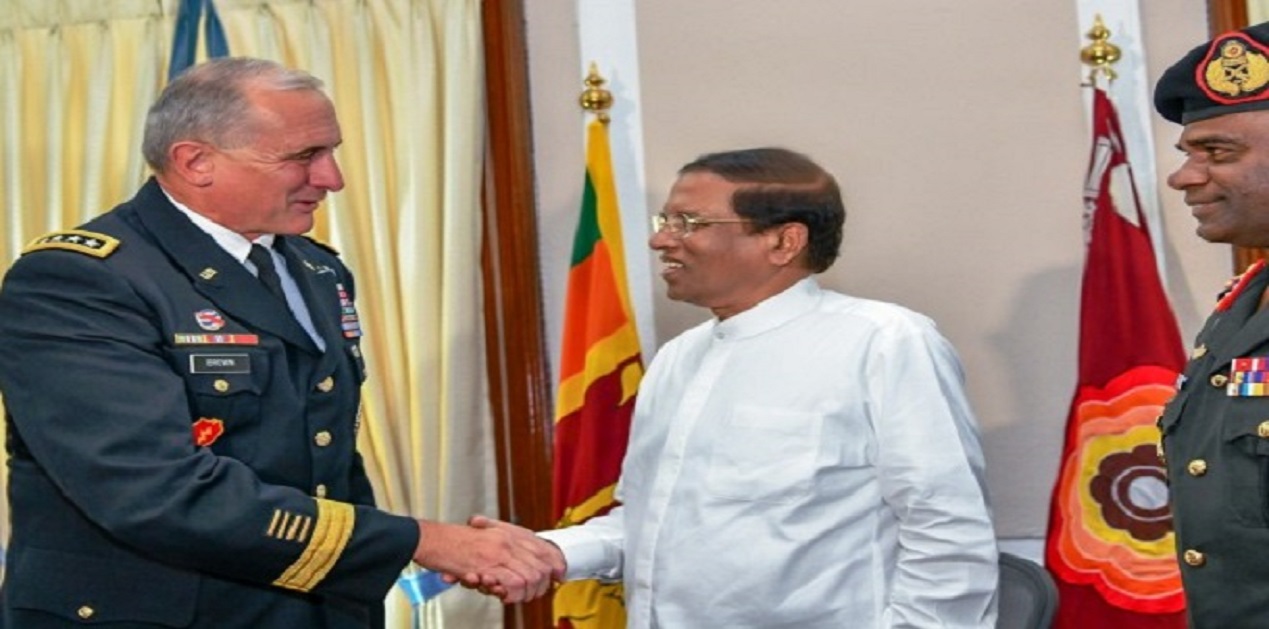
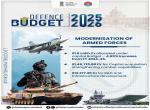

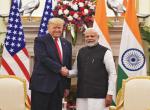
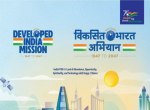
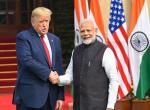



Post new comment